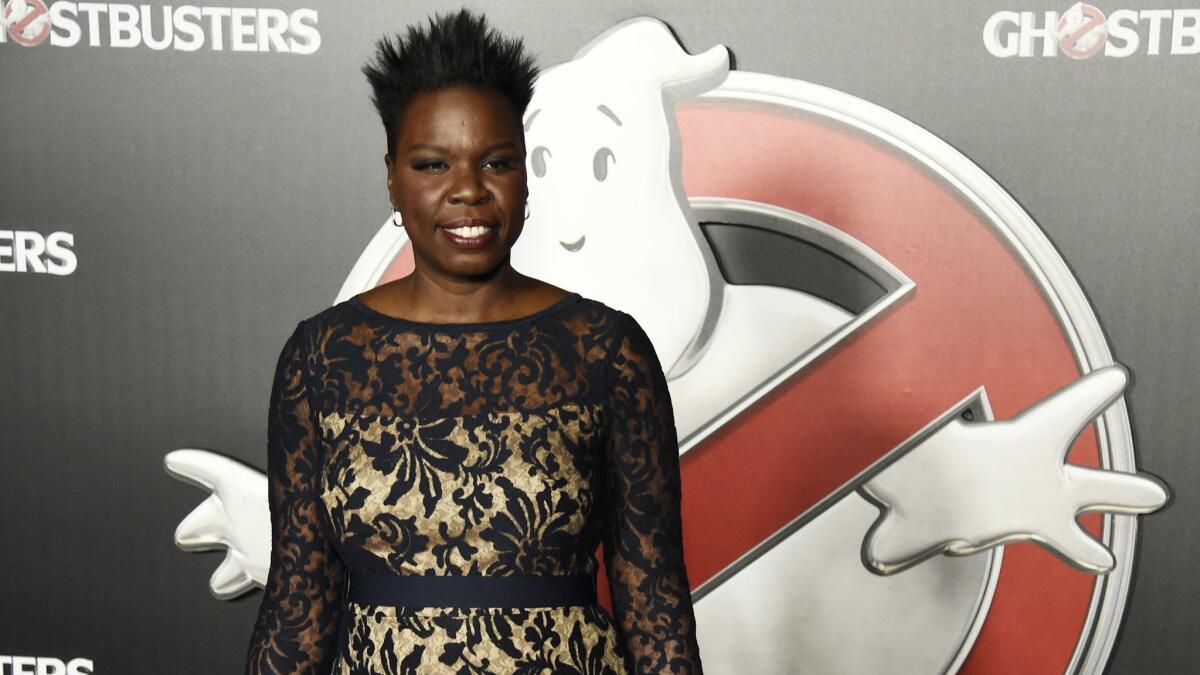Commentary: Kelly Marie Tran is leading the charge against toxic fan culture

The internet is a double-edged sword.
It yields the power to amplify voices often marginalized within the larger cultural conversation, and social media, in particular, has been invaluable for overlooked communities looking for connection.
But those same resources that spur global change — think Arab Spring, Black Lives Matter and the #MeToo movements — can also be perverted, magnifying hate into a focused beam and destroying anyone it touches.
Actress Kelly Marie Tran knows that firsthand. The actress, first woman of color to have a leading role in a “Star Wars” movie, wrote a searing op-ed piece Tuesday about her harrowing experiences with online harassment and the toxic fan culture that drove her from Instagram in June.
“Their words seemed to confirm what growing up as a woman and a person of color already taught me: that I belonged in margins and spaces, valid only as a minor character in their lives and stories,” Tran, who portrayed Rose Tico in “The Last Jedi,” wrote in the New York Times.
Hers is a familiar story. A celebrity — and often a woman or person of color — does something that sparks outrage from a dedicated fan base, whose collective hatred is then turned full force on their newfound nemesis.
For Tran, she had the audacity to appear in “Star Wars.” This grievous error was apparently enough for fans to spew bile at the actress for her looks, her performance and her ethnicity.
For actress Ruby Rose, who was driven off of Twitter just two days after being announced as Batwoman in the CW’s Arrowverse shows, fans of the character alleged that the actress couldn’t play a lesbian and wasn’t Jewish, thus making her an inadequate choice for the role. (Never mind that Rose is a lesbian and identifies as gender fluid.)
For “Saturday Night Live” funny lady Leslie Jones, her Twitter break in 2016 was precipitated by a wave of racist and sexist aggression for appearing in the all-female reboot of “Ghostbusters.”

For “Stranger Things” star Millie Bobby Brown, who quit Twitter in June, the justification for her bullying is even more bizarre. There isn’t any. Brown exited the platform after inexplicably becoming the subject of grossly homophobic memes despite the 14-year-old’s (relatively) long history of supporting the LGBTQ community.
The list goes on.
So when Tran weighed in on the online harassment that led to her social-media hiatus, it was a bold move to reclaim her identity.
“I had been brainwashed into believing that my existence was limited to the boundaries of another person’s approval,” she wrote. “I had been tricked into thinking that my body was not my own, that I was beautiful only if someone else believed it, regardless of my own opinion.”
A sense of entitlement accompanies modern fan culture, as if by loving something, you then become an investor with a right to dictate how you receive your returns.
Some fans have become so deluded about their own importance that they’ve started a campaign to remake “The Last Jedi” because the Rian Johnson version didn’t live up to their standards.
Too often these days, fandom is an incubator where enthusiasm curdles into self-righteousness and enables racism and misogyny.
As Tran has shown us, the answer to online toxicity is not for the victims to toughen up. It’s for the rest of us to unleash our inner empathy warriors and beat back hatred with love.
That’s what Rose Tico would do.
More to Read
Only good movies
Get the Indie Focus newsletter, Mark Olsen's weekly guide to the world of cinema.
You may occasionally receive promotional content from the Los Angeles Times.











